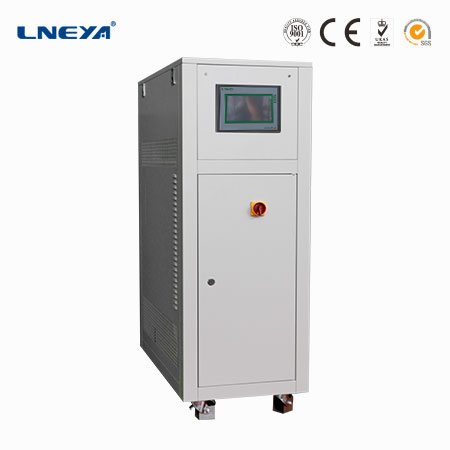Low-temperature coolant circulation pump used with rotary evaporator
The chemical and pharmaceutical fields are the largest end consumer markets for cryogenic coolant circulation pumps. With the increasing demand for low-temperature coolant circulation pumps in this market, the application of cryogenic pumps in the chemical industry is becoming more mature. As a laboratory instrument, cryogenic coolant circulation pumps are indispensable to the laboratory field. It plays an important role in chemical, pharmaceutical and chemical research.

The low-temperature coolant circulation pump can directly cool test tubes, reaction flasks, etc. to carry out chemical reactions at low temperatures, and carry out low-temperature storage of chemicals and biological products. It can also be used in conjunction with rotary evaporators, vacuum freeze-drying boxes, circulating water-type multi-purpose vacuum pumps, etc.
One low temperature coolant circulation pump with two rotary evaporation laboratory cases Note points:
When in use, the actual temperature should not be lower than the minimum temperature. If water is used as the circulating solution, the water inlet pipe cannot be higher than 60 degrees Celsius, but when using absolute ethanol, the water inlet can not be higher than 10 degrees Celsius.

Lneya low-temperature coolant circulation pump adopts international brand compressor, which has small volume and high efficiency. Single compressor can achieve -152°C temperature control. The shell material is cold-rolled steel plate, and the circulating pump with pressure ≤6bar can be customized to make the liquid storage larger capacity according to the needs. Exclusive self-cascade supercooling refrigeration technology, in order to save water resources, can use ethylene glycol-water mixture for circulating refrigeration, strict circulation pipeline design, prevent circulating water pollution, extend the circulating water use time; -125 ° C ~-20 °C Wide temperature range; adjustment unit 0.1 degree. Ambient temperature monitoring function is provided to prevent damage to the system when the ambient temperature is too high.
Related recommendations
-
How to use high and low temperature circulation equipment in extraction and separation?
1264With the continuous development of science and technology, high and low temperature cycle industrial temperature control equipment plays an important role in many fields, especially in the field of extraction and separation. This article wil...
View details -
Simulation analysis and result analysis of battery pack thermal management
1593battery pack thermal management simulation analysis
View details -
Leakage Detection Tips of Low Temperature Freezer
1763Pressure leaking detectionIt is an effective way to check and find out the leakage point. The leakage detecting pressure of refrigerating system of freezer is relevant to the type of refrigerating fluid and cooling and the location of tube. The le...
View details -
Discrimination of power battery integration test system
2143Using the degree of superheat to judge whether the opening degree of the integrated test system of the power battery is appropriate, and using a thermometer to measure the difference between the temperature of the return pipe and the evaporating t...
View details
 LNEYA Industrial Chillers Manufacturer Supplier
LNEYA Industrial Chillers Manufacturer Supplier











